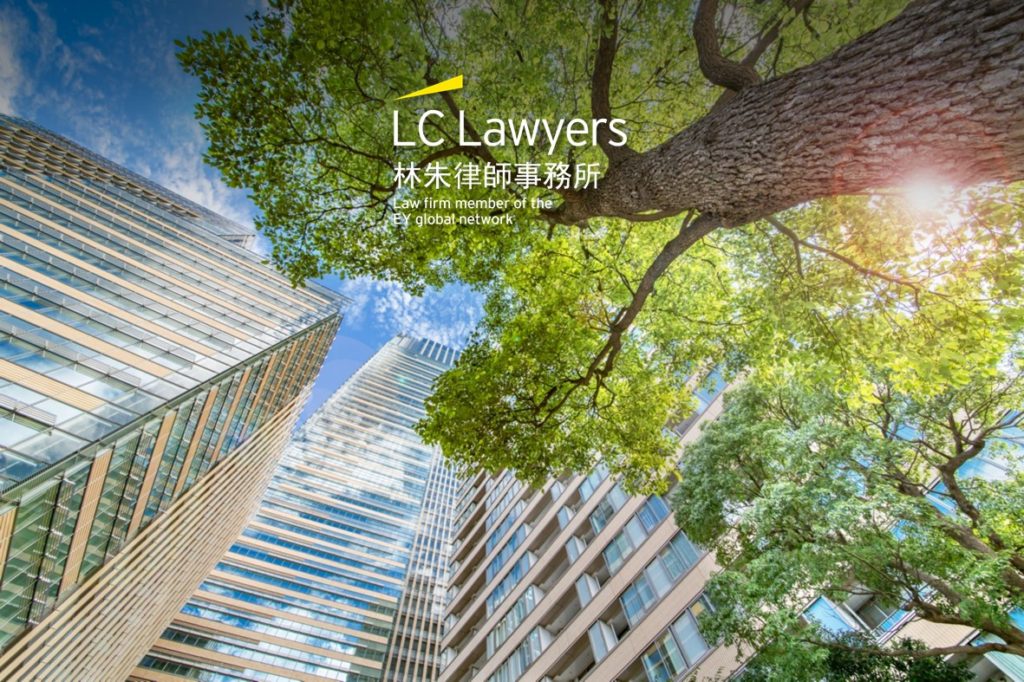

Since 2010, the Global Law Experts annual awards have been celebrating excellence, innovation and performance across the legal communities from around the world.
posted 2 years ago
By Rossana Chu, Jacky Chan:
In October 2021, the Hong Kong government announced the Hong Kong Climate Action Plan 2050 outlining strategies and targets for achieving carbon neutrality. In this article, the authors briefly discuss the four major decarbonisation strategies in the 2050 plan, and their impact on Hong Kong’s real estate sector.
Targets and key strategies
Hong Kong strives to achieve carbon neutrality before 2050 and is pursuing an interim target to reduce carbon emissions by 50% before 2035 compared to the 2005 level.
In 2019, electricity generation was Hong Kong’s largest source of carbon emissions (66%), followed by transport (18%) and waste (7%). Therefore, decarbonisation work will focus on those three areas. The four key strategies below also relate to those areas.
Hong Kong aims to stop using coal for daily electricity generation and increase the proportion of renewable energy in the fuel mix for electricity generation to 7.5% to 10% by 2035 (wind energy representing 3.5% to 4%; waste-to-energy, 3% to 4%; and solar energy, 1% to 2%). The government, together with power companies, will also explore ways to enhance co-operation with neighbouring regions on zero-carbon energy projects before 2050, e.g. via joint investment and development opportunities.
To reduce buildings’ overall electricity consumption, Hong Kong promotes green buildings, building energy efficiency improvements and a low-carbon lifestyle. The goal is to reduce commercial buildings’ electricity consumption by 30% to 40% and residential buildings by 20% to 30% from the 2015 level by 2050. Hong Kong aims to achieving half those targets by 2035.
The long-term target is to reach zero vehicular emissions and zero carbon emissions in the transport sector before 2050 through electrification of vehicles and ferries, developing new-energy transport and measures to improve traffic management. New registrations of fuel-propelled and hybrid private cars will end by 2035. Apart from promoting electric buses and commercial vehicles, the government also plans to collaborate with franchised bus companies and other stakeholders in the next three years to test hydrogen fuel cell electric buses and heavy vehicles.
Hong Kong’s targets are to achieve carbon neutrality in waste management before 2050 and move away from reliance on landfills for municipal waste disposal. The government will strive to develop more waste-to-energy facilities by 2035, further promote waste reduction and recycling, implement waste charging in 2023 and regulate disposable plastic tableware in phases from 2025 onwards.
Real estate impact
The Hong Kong government is considering the following specific measures to implement the 2050 plan that may affect the real estate sector:
From a legal perspective, decarbonisation measures may bring about modifications in laws and regulations, new contractual relationships and changes in how stakeholders fulfil their duties. The government may also strengthen its surveillance of implementation of new requirements, including tax differences on projects of different energy efficiency levels and penalties for failing to meet new regulations.
Property developers will have to reserve additional budgets to co-operate with the decarbonisation measures. Their costs will inevitably increase as they implement enhanced energy-saving facilities, new materials, smart technologies and energy audits. They may also need to revisit their supply chains for materials and source expertise for different aspects of green buildings. Additional costs are likely to be borne by all stakeholders, including property developers, builders and contractors, building purchasers and tenants.
However, many commercial and residential buildings in Hong Kong are more than 40 years old and conducting decarbonisation measures (e.g. retro-commissioning) in these buildings will not be easy. It will require much planning and time to implement. It is expected that the government will provide guidance and support.
Key takeaway
The high proportion of electricity generation for commercial and residential buildings explains the government’s determination to improve energy efficiency in buildings. Property developers will have to be pro-active to meet the 2050 plan and the public’s increasing demand for carbon neutrality.
First published in February issue 2022 of China Business Law Journal.
Download (pdf)
Note: This material has been prepared for general information purposes only and is not intended to be relied upon as professional advice for any cases. Should you need further information or legal advice, please contact us.
Author


There are no results matching your search.
Resetposted 3 hours ago
posted 14 hours ago
posted 14 hours ago
posted 3 days ago
posted 4 days ago
posted 4 days ago
posted 4 days ago
There are no results matching your search.
ResetSign up for the latest advisory briefings and news within Global Advisory Experts’ community, as well as a whole host of features, editorial and conference updates direct to your email inbox.
Naturally you can unsubscribe at any time.
Global Advisory Experts is dedicated to providing exceptional advisory services to clients around the world. With a vast network of highly skilled and experienced advisers, we are committed to delivering innovative and tailored solutions to meet the diverse needs of our clients in various jurisdictions.